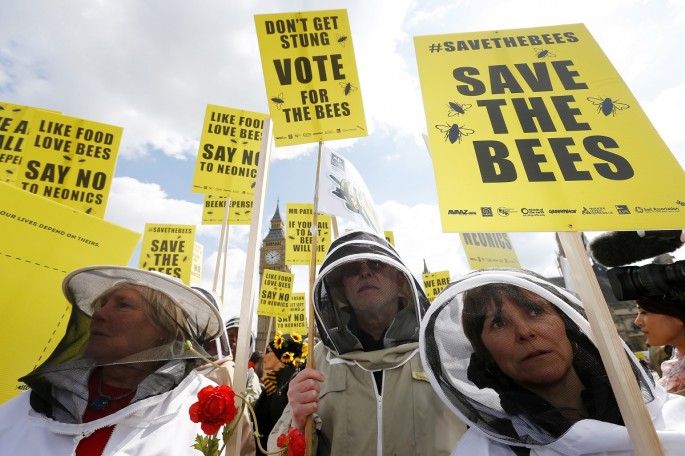In what has come to be utterly baffling to the scientists, new research has found bees to harbour strong affinity for neonicotinoids, a chemical found in pesticides.
The study was conducted as part of the Insect Pollinators Initiative in collaboration with the Trinity College Dublin and Newcastle University offered bees a pure solution of sugar and another laced with low doses of neonicotinoids. Both honeybees and bumblebees opted for the latter.
According to the study that has been publihsed in Nature, further research proved that the chemical neonicotinoids acts in much the same manner as nicotine on human beings. Similar to nicotine, bees too cannot taste neonicotinoids, which makes them more vulnerable to exposure to it. This has led researchers to believe neonicotinoids too may have the same effect on humans as well, reported cbc.
"There's a conundrum that they are attracted to the stuff that actually is having a negative impact on their motor function and their ability to collect food and forage," said Geraldine Wright of Newcastle University.
Nonicotinoids are of three varieties - clothianidin, imidacloprid and thiamethoxam.
However, this has led to considerable confusion as to how the ingestion of neonicotinoids can impact the lifestyle of the bees, more so given the crucial role of pollination that bees play. Researchers though have sounded caution claiming exposure to neonicotinoids does affect the foraging ability of bees and could even lead to their extinction as the worst case scenario.
The use of such pesticides on plants that bees are attracted to has been banned by the European commission since Dec 1, 2013 for a period of 2 years, or until some conclusive emerges on this.
Not surprisingly, pesticide manufacturers such as Bayer and Syngenta have sounded caution against any move to limit usage of pesticide as this will make the crops vulnerable to pest attacks.
In another research conducted in Sweden, scientists found that bees in the vicinity of crops treated with nonicotinoids showed less activity in comparison to other region having untreated crops. The effect seems to be more pronounced in case of bumblebees while being less severe for the honeybees.



























